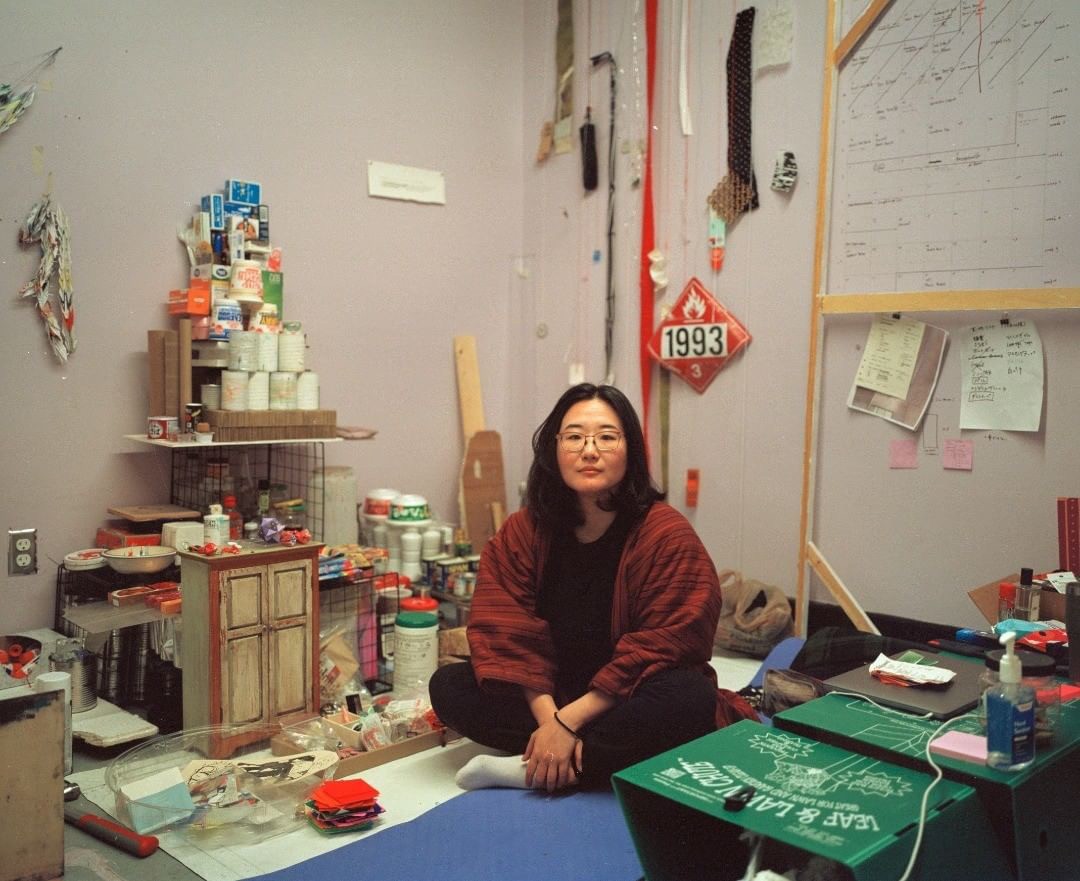We recently connected with Hanae Kawai and have shared our conversation below.
Hanae, thanks for taking the time to share your stories with us today Are you happier as a creative? Do you sometimes think about what it would be like to just have a regular job? Can you talk to us about how you think through these emotions?
To be honest, I am not really aware of being a professional artist in my current career. If anything, being creative is a way of life. It is great to be able to make a living off of what you create, but for me, that is not the purpose of creating art. I always feel that I am just lucky to receive some kind of reward for it. Because it’s like I’m already being paid for creating and showing my work. So I have been creating while doing other work, both as a student and now. Mostly as an assistant to artists, but I have also worked as a cram school teacher, washed dishes in a restaurant, and even worked in a haunted house. I’ve been thinking more and more lately that for me, keeping regular jobs to make a living and time as an artist at the same time is a great fit. Not only because of the money and the living aspect, but because it definitely influences and grows my work and ideas.
A lot of my work is concept-based installations, videos, performances etc., so it is very important to think of ideas before shaping. So I actually do a lot of thinking while doing other work, and moreover, I am often inspired by people and various events at work to put my ideas together. I think that is very effective rather than staying alone in the studio and thinking about what to create.
For example, when I first moved to New York, I worked as a dishwasher at a Japanese restaurant, and I was able to create one of my works from that experience.
It was a repetitive process of flushing the returned dishes leftover, running them through the dishwasher machine, drying them, and putting them back on the shelf. It is not a job I dislike, but when I suddenly look at myself objectively while washing dishes, I feel a little silly and wonder what I came to New York to do. I was thinking about this and that while I was at work, trying to find a way to give something positive back, and I came up with the idea of a dishwasher piece.
Dishwasher is a performance of washing and getting dirty, a never-ending contradictory process. The detergent contains black ink.
I used the bathroom of the Michelangelo Hotel in Times Square, where my friend was staying at the time. On the same day I told her about this work and asked her to come to eat at the restaurant where I work and count the number of chews of udon, the signature dish of the restaurant. The total was 997 times, which I took as 997 seconds, resulting in a performance of 16 minutes and 6 seconds.
While speaking, we repeatedly washed the dishes with black detergent. The result was unexpected: black at first, gradually turning gray as the detergent got stronger.
Thankfully, the restaurant is very busy and the washing can’t keep up with the dishes that are being returned, even running out of room to put them down, which can be overwhelming when it goes on for several hours. I sometimes wonder if it will never end and I will be washing dishes for the rest of my life. Well, the end still comes every night. This is why I have often thought about the word and idea of end. I used to be afraid of some milestone or the idea of the end, but now I am thankful that it exists. The endless amount of dishes I have to do will one day be done, today will be over in a flash, and when I think that life is just a moment, it doesn’t matter anymore, and in a very good way.
I really like the perfomance and conceptual background, and I thought this kind of production method was very suitable for me more than anything else.
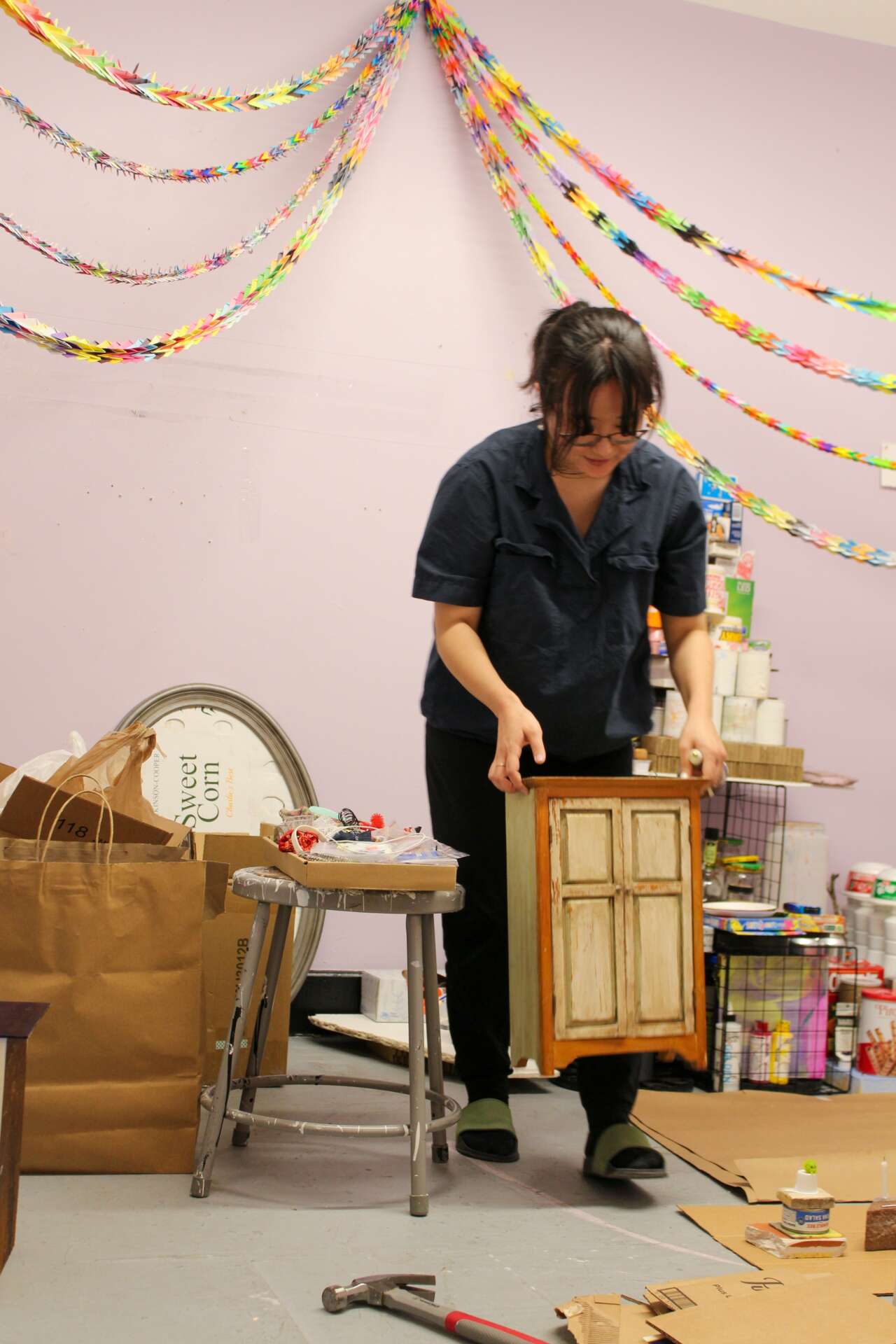
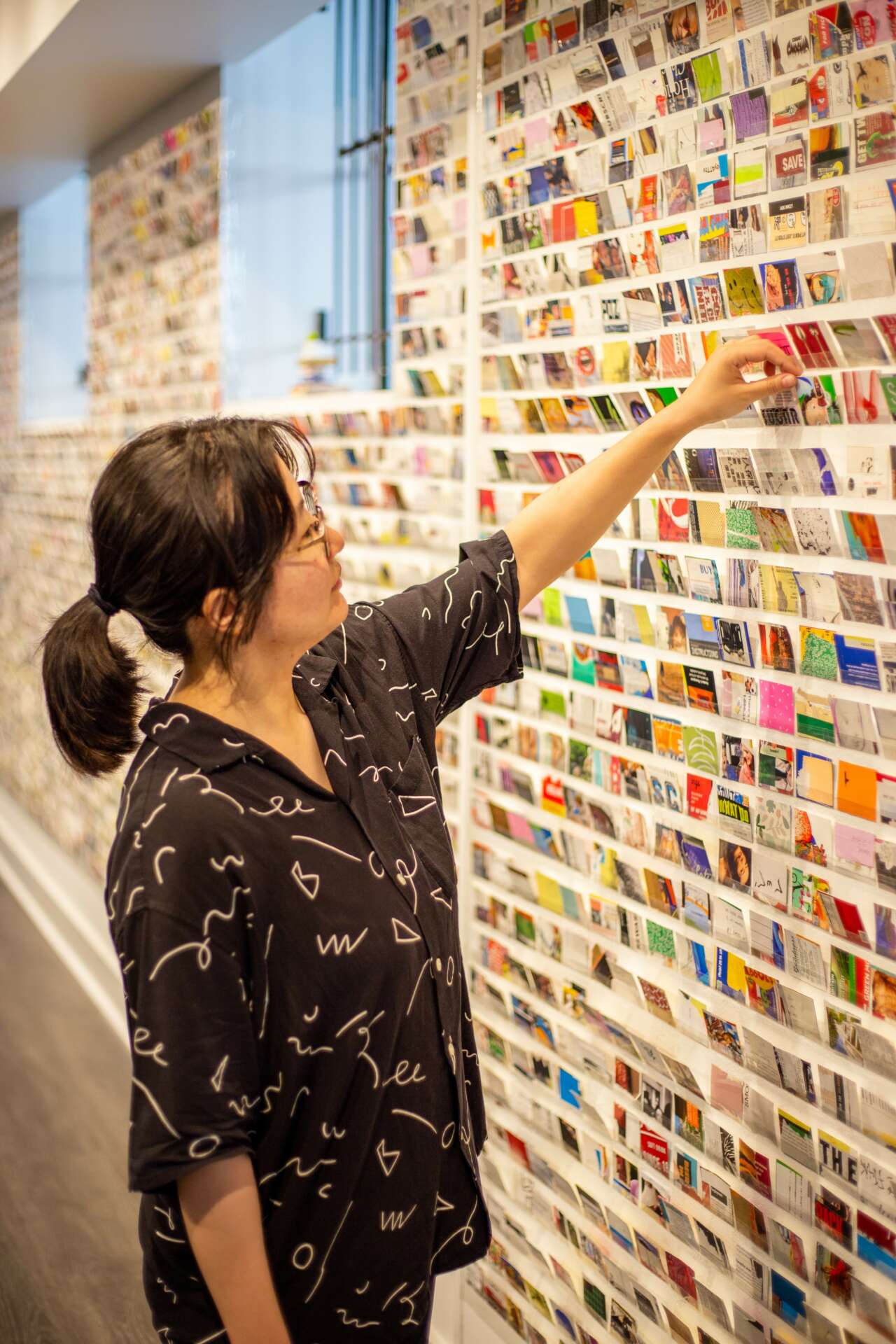
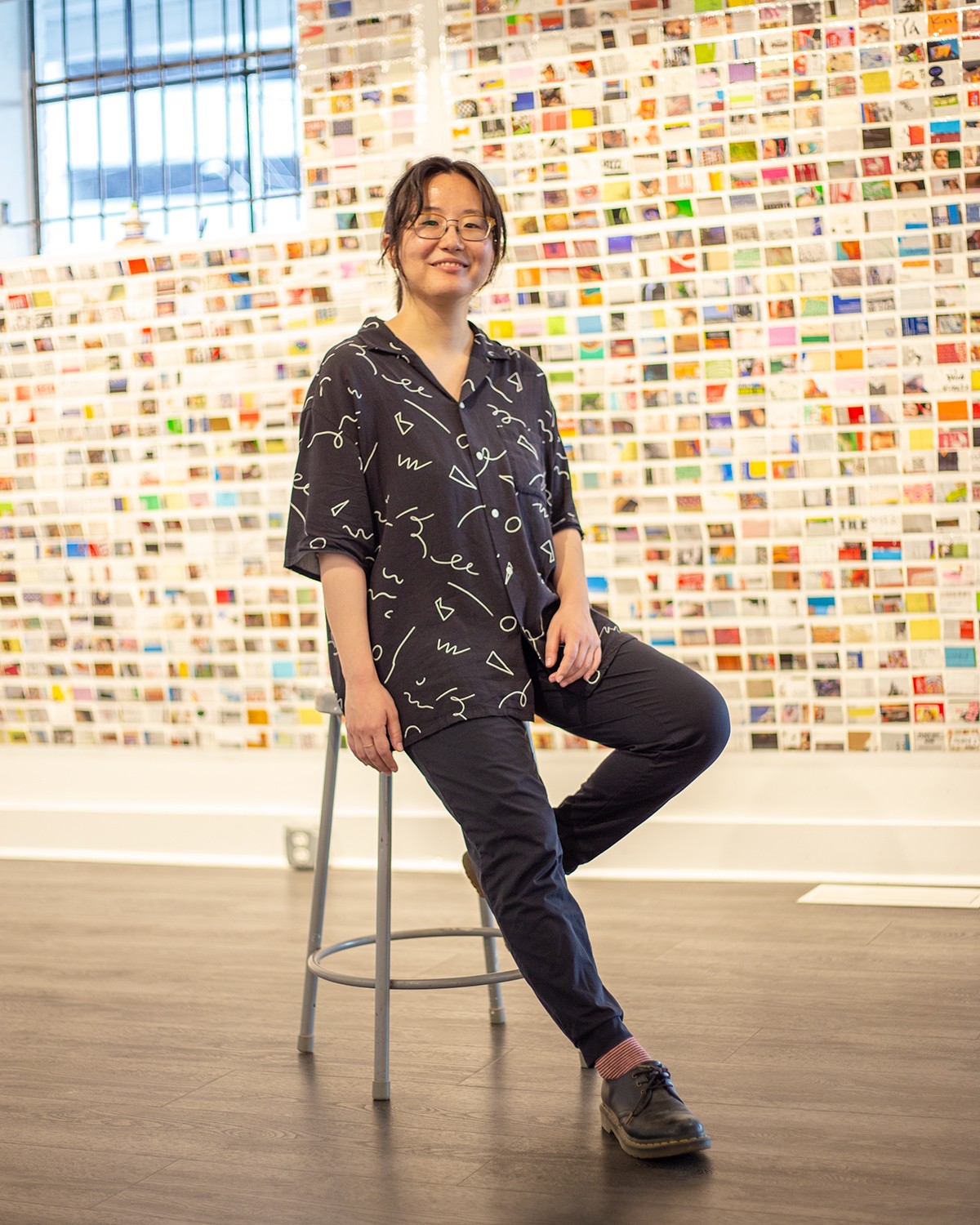
Hanae, before we move on to more of these sorts of questions, can you take some time to bring our readers up to speed on you and what you do?
I was born and raised in Japan and came to the U.S. for college. In the Japanese environment in which I grew up, most people would think that living with art was nearly impossible, beyond the reach of Western art education and common sense. Since childhood, drawing and making things were the only things I was good at, but as I became more and more inspired by those around me, I thought as a teenager that my dreams would probably never come true. But as I came to the U.S., talked with professors and classmates, and studied, I began to feel that there were more possibilities in the world and that I could not let others decide what possibilities I had.
In the beginning after I entered the school, painting was my major expression, but as I studied American Conceptual Art, I became more and more influenced by it. Living in the U.S. as a Japanese person, I often struggled with language and communication methods. While it is fascinating to understand an artist’s expression through visual observation, as in the case of paintings and sculptures, I wanted to expand that method of expression beyond the visual to include auditory, tactile senses, and something more interactive for deeper communication between the creator and viewer.
After graduating from college, I worked as an assistant at Kaikai Kiki, led by Japanese contemporary artist Takashi Murakami, in New York and Japan. It was very stimulating to be involved in the production of a serious art industry, but it also made me realize that my passions were different from his way of making art.
I returned to the U.S. for graduate school and continued to study and work hard. Looking back, graduate school was my greatest youth. I was blessed with the best friends and professors, and for some reason, it was as if all my old hardships were swept away in one fell swoop. I had a clear idea of what I wanted to do as an artist, and at the same time, I was able to improve my skills and, through various opportunities, I became involved with the museum curators and other world-class contemporary artists.
Through these experiences, I realized that I like to think about even trivial things, and I would like to further explore communication beyond language in the international world.
I am currently living in New York City and work as an assistant. I will be participating in an artist residency in Germany this October, so I am spending my time preparing for that production.
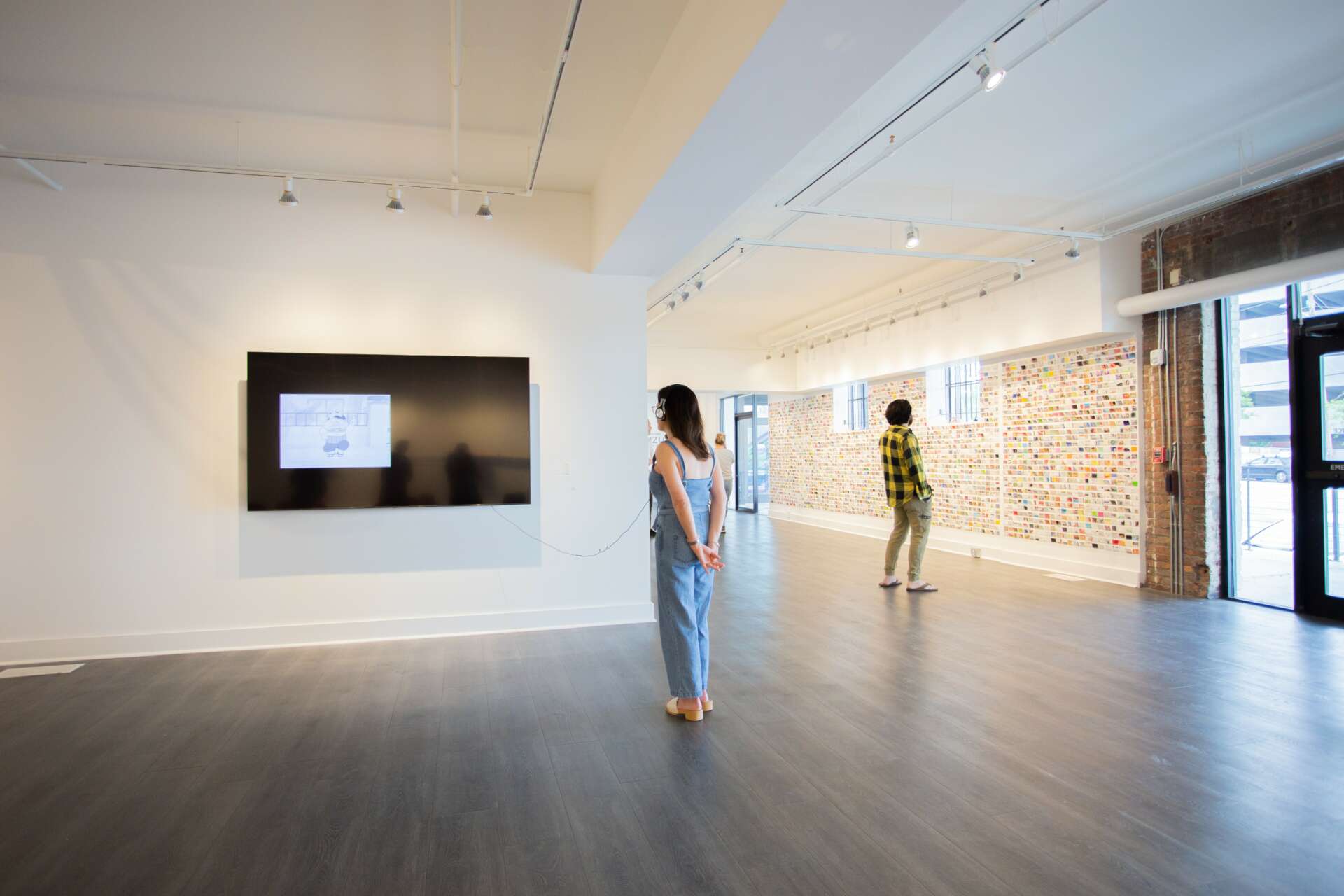
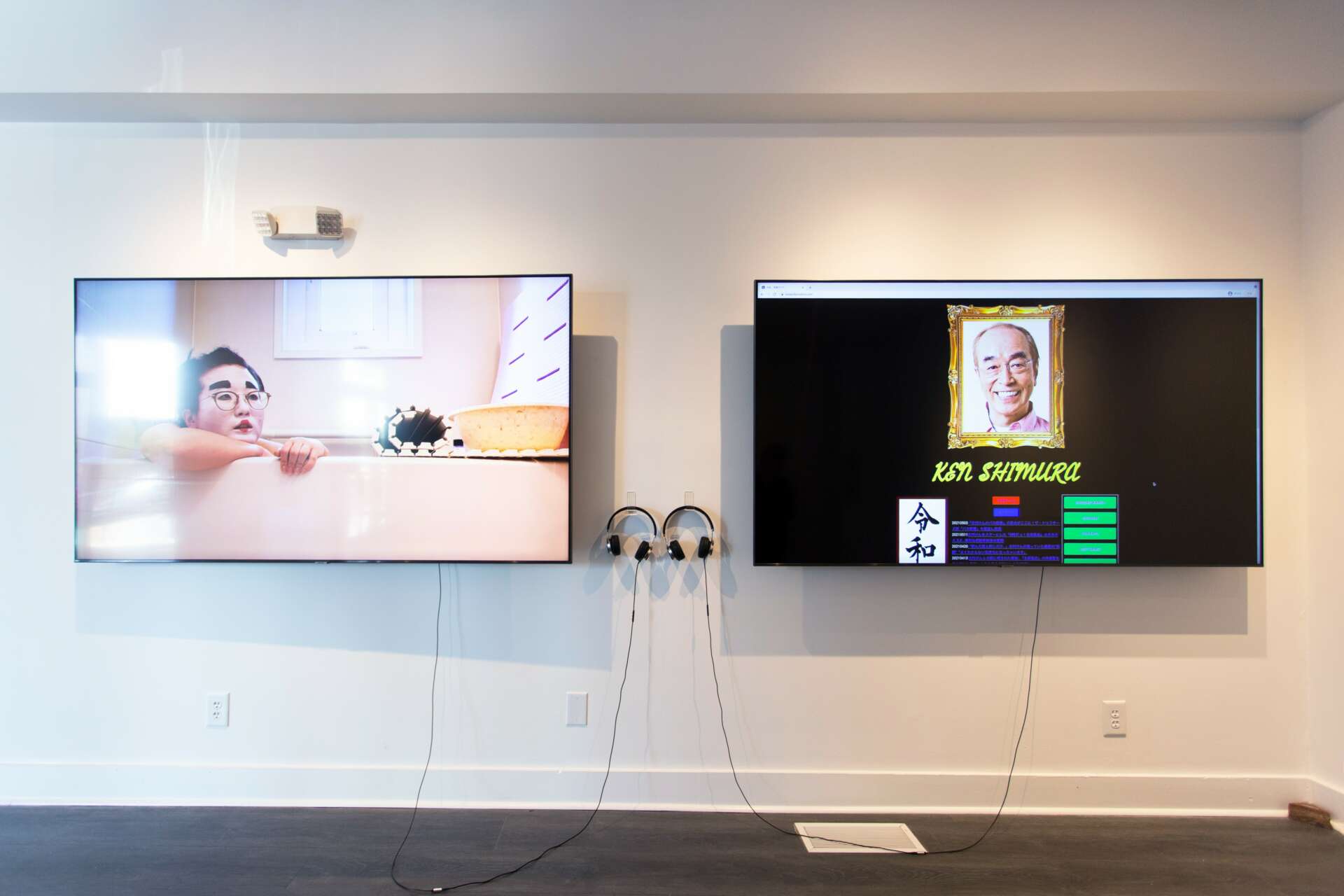
Let’s talk about resilience next – do you have a story you can share with us?
I don’t know if it’s called resilience, but I have experienced many problems in my life up to this point, and the idea of “it’ll work out” has become my one important motto. It is a kind of baseless confidence.
When I was in Japan, I was relatively frail and there were many times when I could not go to school, there were times when I wanted to work but could not, there were times when I was bullied a little, there were family problems that changed my life, etc. It seems laughable now, but at the time it was quite painful and I felt hopeless and guilty every time I went through it. I was tormented by despair and guilt each time. However, the fact that I am able to live, work, and eat normally until I am almost 30 years old now makes me realize that life can be managed.
Life is full of problems and troubles, and even now, something happens, but I am not in a hurry anymore, or rather, I don’t think about it so much anymore. I think that time will eventually solve the problem if I worry about it too much, so I try to be open-minded and think that everything will work itself out.
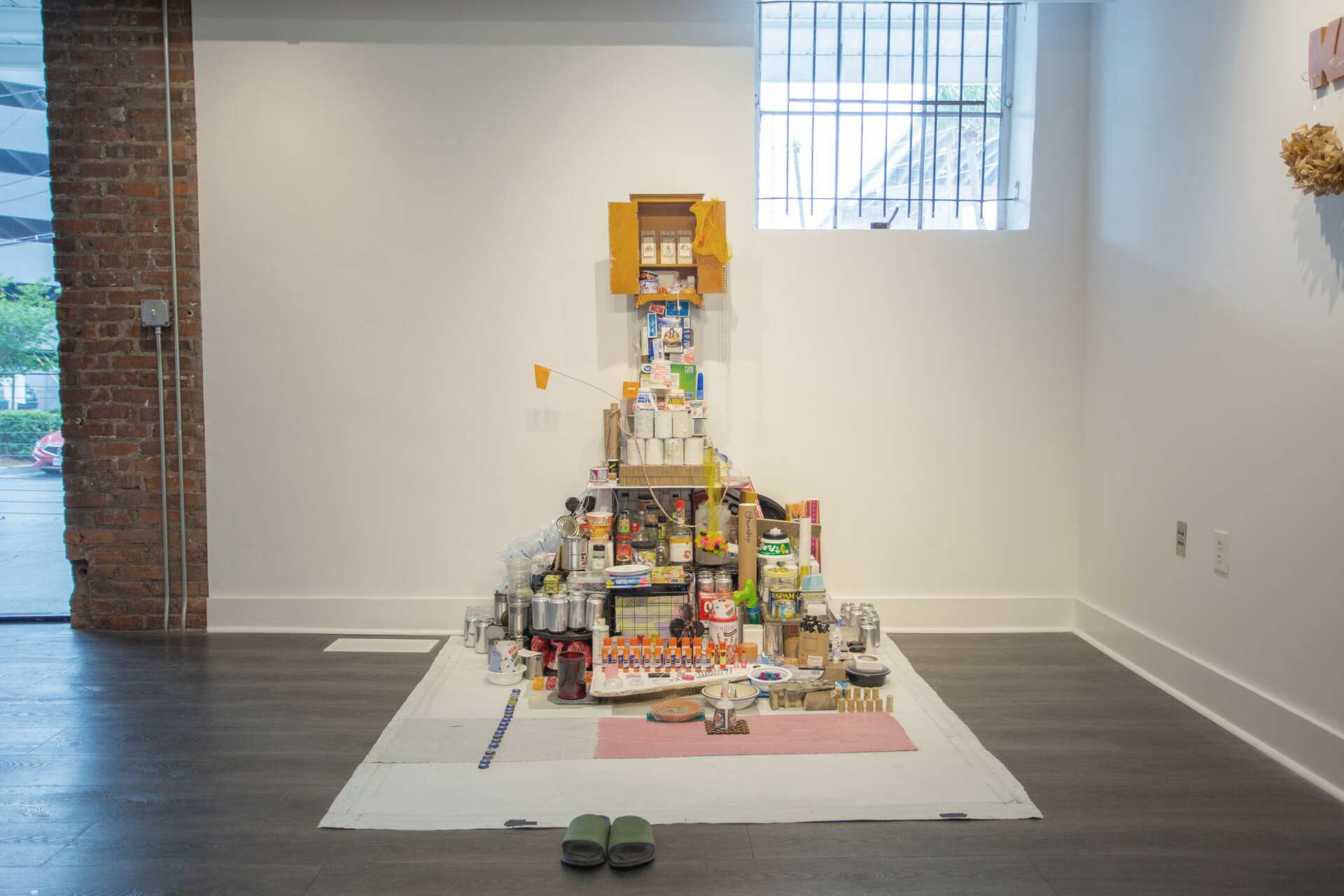
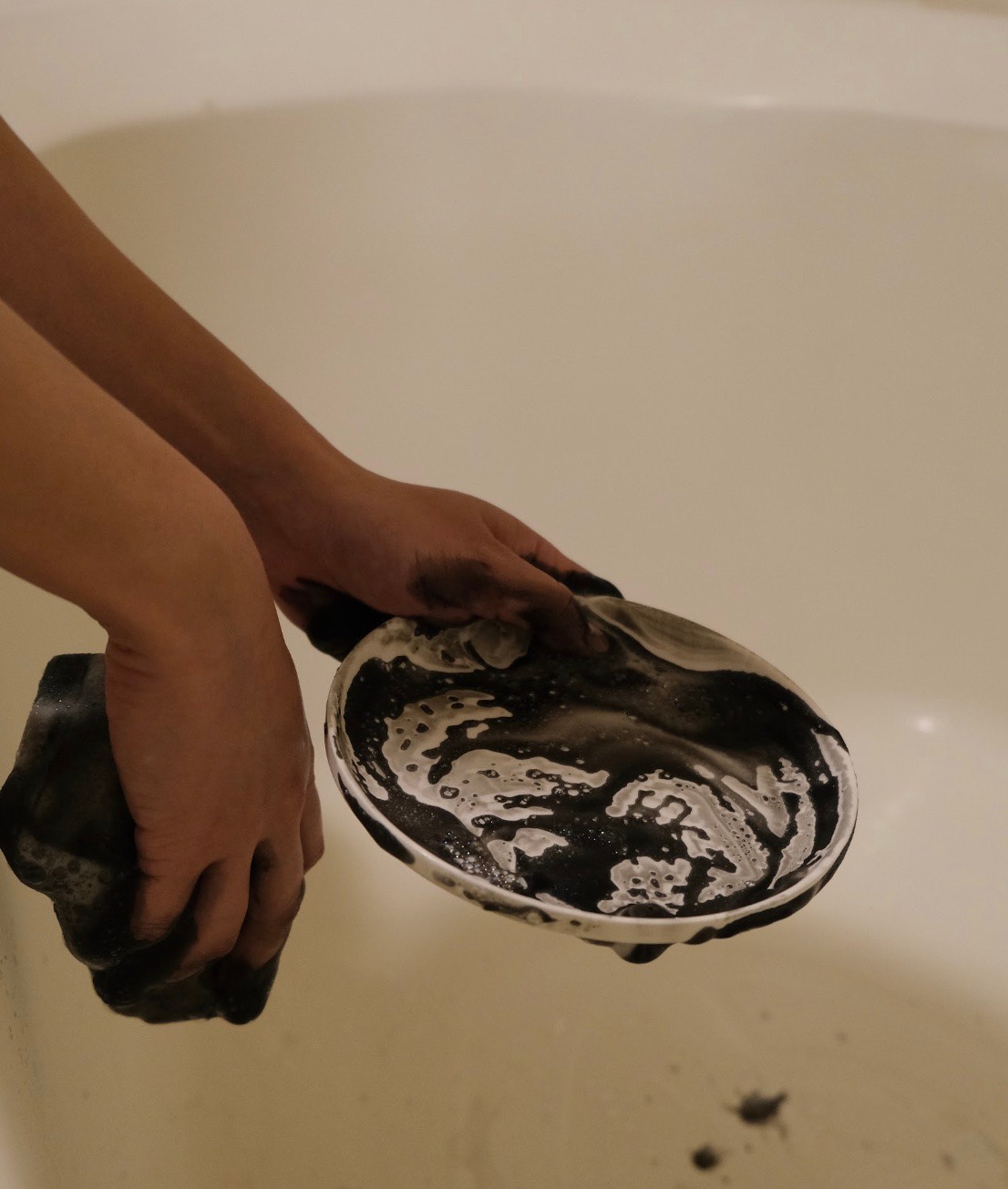
Looking back, are there any resources you wish you knew about earlier in your creative journey?
I am sure that my life in Japan was boring and painful when I was young, but now I think it was because I was an ignorant person who only knew about the country, Japan. If I had a more multifaceted perspective, I would have been more interested in and appreciative of my country’s traditions and culture.
I wanted to leave Japan as a child because I really disliked living in Japan, but when I came to the U.S., I realized for the first time that the value of being Japanese as an international student was extremely important to me. I had no individuality at that time to compete with other American students in expressing myself, except for the fact that I was Japanese. So I began to study about my own country.
But now I wish I had started a little earlier. There are still many things I don’t know about myself and my country. Japan is a small island country, and I lived on an even smaller island of that island country, so I probably had far fewer opportunities to experience other cultures and values. However, I think it would have been more interesting if I had known about the world, that there are ideas that are the opposite of the ones I know, and that there are many different correct answers, instead of staring at a single point from a young age.
Contact Info:
- Website: hanaekawai.com
- Instagram: hanae_kay


